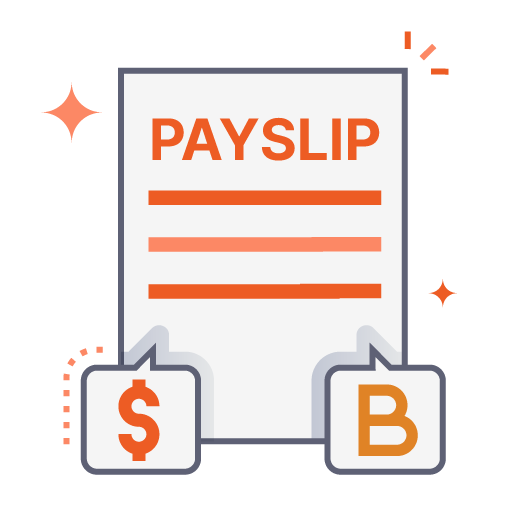Managing payroll in Malaysia is a critical function for businesses of all sizes, requiring precision, compliance, and efficiency. Payroll services encompass the end-to-end process of calculating employee salaries, managing statutory contributions, handling tax deductions, and ensuring timely salary disbursements. These services are essential not only for maintaining smooth internal operations but also for adhering to Malaysia’s complex regulatory landscape. Whether handled internally or outsourced to a professional provider, payroll services help businesses streamline operations and reduce administrative burdens.
The importance of payroll services in Malaysia is amplified by the country’s stringent employment laws and statutory requirements. Employers must comply with various regulations, including the Employment Act 1955, the Income Tax Act 1967, and the EPF and SOCSO Acts. Mistakes in payroll processing can lead to penalties, employee dissatisfaction, and reputational damage. By leveraging payroll services, businesses can ensure accuracy in salary computation, timely tax submissions, and proper handling of employee benefits, all of which contribute to a more stable and compliant work environment.
This guide provides a comprehensive overview of payroll services in Malaysia, beginning with a clear explanation of what payroll services entail and why they are essential for businesses operating in the country. It then explores the four key components of payroll: salary calculation, statutory contributions, leave and attendance management, and payslip generation. The guide also outlines the relevant Malaysian payroll laws and regulations that employers must follow and compares the pros and cons of in-house versus outsourced payroll processing methods.
In addition, readers will gain insights into the benefits of engaging payroll service providers, such as improved compliance, automation, data security, and integration with HR and accounting systems. The guide concludes with practical tips on how to choose the right payroll service provider and a step-by-step breakdown of the payroll process in Malaysia. Whether you are a startup, SME, or large enterprise, this guide is designed to equip you with the knowledge and tools needed to manage payroll effectively and confidently in the Malaysian business landscape.
Key Takeaways
- Legal Compliance Assurance: Professional payroll services ensure full adherence to Malaysia’s Employment Act, Income Tax Act, EPF, SOCSO, and minimum wage regulations, minimizing the risk of legal non-compliance.
- Accuracy and Error Reduction: Leveraging payroll expertise and automation significantly reduces manual errors in salary calculations, statutory deductions, and reporting.
- Enhanced Operational Efficiency: Payroll automation streamlines administrative tasks, freeing up internal resources and improving overall business productivity.
- Employee Satisfaction and Trust: Timely and transparent payroll processing reinforces employee confidence and satisfaction, contributing to a positive workplace environment.
- Cost Savings through Outsourcing: Engaging external payroll providers minimizes overhead costs associated with in-house payroll teams, infrastructure, and software maintenance.
- Comprehensive Support and Scalability: A reliable payroll provider offers continuous support, stays updated with local regulatory changes, and can scale services as your business grows.

Understanding Payroll in Malaysia
Managing payroll in Malaysia involves navigating a complex landscape of statutory requirements and administrative responsibilities. Businesses must comply with numerous regulations. These obligations require precise calculations and timely submissions to avoid penalties. Payroll processing also includes managing various components like allowances, bonuses, overtime, and leave entitlements, all of which must be accurately reflected in employee compensation. Ensuring compliance while maintaining accuracy is essential for sustaining employee trust and operational integrity.
Given these challenges, selecting the right payroll solution becomes a strategic necessity. Whether handled in-house or outsourced, the system must support regulatory compliance, data security, and scalability. An effective payroll solution not only automates routine tasks but also provides valuable insights for workforce planning and decision-making. By streamlining payroll operations, businesses can reduce administrative burdens, enhance efficiency, and focus more on growth and employee engagement.
An Overview of Payroll Services
Managing payroll is more than simply calculating and disbursing employee salaries as it involves a comprehensive process of meeting legal obligations, ensuring accurate statutory contributions, and complying with tax regulations. In Malaysia, employers are required by the Inland Revenue Board (HASiL) to register as an employer and obtain an Employer Number as soon as they hire staff. This step allows them to facilitate Monthly Tax Deduction (MTD or PCB) processes and ensures that employees’ income taxes are collected and remitted accordingly. While these deductions are a form of tax prepayment on behalf of employees, the responsibility for timely and accurate remittance lies entirely with the employer.
Employers must also provide annual documentation in the form of Form E, which reports employee earnings to HASiL, and Form EA, which is distributed to employees to assist them with their personal income tax filing. Moreover, HASiL requires that employers notify the department through prescribed forms, such as CP21 or CP22A, when an employee ceases employment, retires, or leaves Malaysia for more than three months. This ensures that tax clearance processes are properly managed, protecting both the employee and the business from future liabilities.
These procedures emphasize the importance of effective payroll services, which go beyond simple salary calculations to include the careful administration of tax deductions, benefit reporting, and statutory submissions. A reliable payroll system ensures that employers are not only adhering to legal expectations but are also maintaining a reputation for financial transparency and regulatory compliance.
Key Takeaways:
- Payroll involves legal obligations such as employer registration, MTD deductions, and statutory reporting.
- Employers are responsible for remitting employee taxes and submitting Forms E and EA annually.
- Notifications to HASiL are mandatory upon employee departure, retirement, or long-term relocation abroad.
- Payroll services are crucial in ensuring full compliance with Malaysian tax law and administrative transparency.
5 Key Facets: The Importance of Payroll Services in Malaysia
The Legal Landscape in Payroll Management
Malaysia’s payroll framework is governed by a complex web of statutory requirements that employers must strictly adhere to. To comply with the Inland Revenue Board’s tax regulations and fulfill obligations to statutory bodies, employers must make mandatory contributions to the Employees Provident Fund (EPF), Social Security Organization (SOCSO), and Employment Insurance System (EIS). Each of these institutions imposes specific rates, deadlines, and reporting obligations that must be followed without exception.
Employers must also be vigilant in categorizing employment types correctly, determining contribution eligibility, and ensuring accurate withholding and remittance of taxes and statutory payments. Monetary penalties, audits, reputational damage, and loss of business credibility are potential consequences of non-compliance. An efficient payroll system, whether in-house or outsourced, must be built to accommodate these complex rules while adapting to any regulatory changes promptly.
Key Takeaways:
- Employers in Malaysia face complex legal obligations regarding payroll contributions and taxes.
- Compliance requires precise calculations, timely remittances, and accurate employee classification.
- Legal missteps can lead to fines, audits, and reputational harm.
Minimizing Errors via Accurate Payroll Processing
Accuracy in payroll processing extends beyond basic salary calculations to encompass various allowances, overtime, deductions, and benefits. Inaccurate computations can disrupt financial reporting, mislead management decisions, and generate compliance issues during audits. Errors in statutory contributions, for example, may not be discovered until months later, resulting in backdated penalties and administrative headaches.
Leveraging digital payroll systems mitigates these risks through automated calculations, updated statutory tables, and error alerts. These systems can also be programmed to handle complex scenarios like prorated salaries, bonuses, and multi-tiered commission structures. In addition to reducing costly mistakes, accurate payroll records are critical for generating reports needed for budgeting, forecasting, and compliance filings.
Key Takeaways:
- Payroll accuracy ensures financial integrity and audit-readiness.
- Errors in deductions or overtime can have long-term compliance consequences.
- Automation enhances consistency and enables advanced payroll configurations.
Boosting Efficiency via Payroll Automation
Payroll automation represents a shift towards greater efficiency and strategic HR management. Seamless integration with other operational platforms like human resources, attendance tracking, and leave management is a symbol of modern automated systems, ensuring efficient and streamlined workflows across departments. This creates a centralized ecosystem where data flows automatically, significantly reducing the time spent on data entry and reconciliation. Automation ensures faster processing of payroll cycles, minimizes the risk of missed deadlines, and offers real-time visibility into payroll status.
Additionally, automated systems generate comprehensive reports on labor costs, tax summaries, and statutory contributions, which aid in compliance and strategic planning. The ability to adapt payroll configurations to match evolving labor laws or internal policy changes without system overhauls further adds to operational resilience.
Key Takeaways:
- Automation centralizes payroll data with other HR functions.
- Businesses benefit from real-time updates and faster processing.
- Advanced reporting tools support decision-making and compliance.
Fostering Employee Trust via Timely Payments
Timely and precise salary payments are fundamental to maintaining high levels of employee satisfaction. This reliability becomes especially crucial during challenging periods, such as economic downturns or organizational changes. In contrast, repeated delays or inaccuracies can erode employee confidence, leading to disengagement, high turnover, and reputational risks for the employer.
Efficient payroll management not only supports employee morale but also reduces the administrative burden of resolving disputes or reissuing incorrect payments. A well-run payroll system is therefore a cornerstone of employee engagement and retention strategies.
Key Takeaways:
- Timely payroll enhances employee morale and trust in leadership.
- Inaccuracies lead to dissatisfaction, turnover, and internal disputes.
- Reliable payroll systems contribute to workforce stability.
Enhancing Cost-Effectiveness via Payroll Outsourcing
Outsourcing payroll functions is an increasingly popular strategy among companies aiming to reduce operational costs while ensuring high levels of accuracy and compliance. Maintaining an in-house payroll team requires significant investment in recruitment, training, software, and system upgrades, all of which can be burdensome for SMEs or rapidly scaling businesses. By replacing fixed costs with predictable, manageable service fees, outsourcing transforms cost structures into more flexible and scalable models.
In addition to cost savings, external providers bring a wealth of expertise in local labor laws, tax requirements, and statutory contributions, which significantly reduces the risk of compliance errors. This allows business owners to shift their focus toward growth and performance, confident that payroll responsibilities are in capable hands.
Key Takeaways:
- Outsourcing transforms payroll from a fixed cost to a scalable service.
- External providers offer expert handling of compliance obligations.
- Businesses can reallocate resources toward core strategic functions.
The 4 Pillars of Payroll in Malaysia

1. Approach to Employee Salary Calculation

2. Mandatory Statutory Contributions for Employees

3. Managing Leave and Attendance in Compliance

4. Importance of Transparent Payslip Generation
Approach to Employee Salary Calculation
Employee salary calculation in Malaysia involves more than just the basic monthly wage. It integrates various compensation components that reflect an employee’s total earnings. These include overtime pay, which is calculated based on the rate stipulated by the Employment Act for work beyond regular hours, as well as fixed and variable allowances such as travel, meals, or housing. Gross income is also influenced by performance-based commissions and discretionary bonuses.
From this amount, several mandatory deductions are made, including contributions to statutory bodies and income tax under the Monthly Tax Deduction (MTD) scheme. Employers must ensure these calculations are precise to prevent disputes and ensure regulatory compliance. Missteps can lead to financial penalties and strained employer-employee relationships. Furthermore, proper classification of earnings and deductions is crucial for financial reporting and auditing purposes.
Key Takeaways:
- Salary structure includes fixed and variable components like overtime and commissions.
- Accurate deductions are vital for compliance and employee trust.
- Misclassification or miscalculation can lead to legal or financial issues.
Mandatory Statutory Contributions for Employees
Statutory contributions are a cornerstone of Malaysia’s social protection system, and employers are legally required to deduct and remit them monthly. The Employees Provident Fund (EPF) functions as a retirement savings vehicle, with contribution rates varying by age and income bracket. For most employees under 60, the combined contribution rate can be as high as 23%, split between employer and employee. The Social Security Organization (SOCSO), under the Employees’ Social Security Act, provides medical and financial support in cases of work-related injuries, disabilities, or death.
Employees earning under a certain threshold must be enrolled in both the Employment Injury Scheme and the Invalidity Scheme. The Employment Insurance System (EIS), meanwhile, supports retrenched employees through temporary financial assistance and job placement services. Finally, the Monthly Tax Deduction (MTD/PCB) facilitates a pay-as-you-earn approach to income tax, eliminating the burden of lump-sum payments during tax season. Employers must be vigilant in applying correct rates and submitting payments on time to avoid fines.
Key Takeaways:
- EPF contributions vary by income and age, benefiting retirement planning.
- SOCSO covers work injuries and long-term disability risks.
- EIS provides structured support during unemployment.
- MTD simplifies income tax compliance for employees.
Managing Leave and Attendance in Compliance
Under the Employment Act, employees are entitled to annual leave starting from 8 days after one year of service, increasing with tenure. Depending on the length of service and whether hospitalization is required, employees are entitled to between 14 and 22 days of sick leave. Maternity leave of 98 consecutive days is guaranteed for eligible female employees, while public holidays, at least 11 days annually, must be observed with full pay.
Employers must keep accurate leave records, as mismanagement can lead to payroll errors, employee dissatisfaction, and legal complications. Automated attendance tracking systems, which log working hours and absences in real time, are increasingly adopted to ensure that overtime, unpaid leave, and holiday work are reflected accurately in payroll. These systems also support compliance with the law and contribute to efficient workforce planning.
Key Takeaways:
- Leave entitlements are legally mandated and increase with tenure.
- Accurate leave tracking helps avoid payroll and legal issues.
- Automated systems ensure fair pay and operational efficiency.
Importance of Transparent Payslip Generation
The generation of payslips is not just a procedural formality but a legal requirement under Malaysian labor regulations. A comprehensive payslip offers transparency into how an employee’s compensation is structured and distributed. The net salary is calculated after accounting for statutory deductions such as EPF, SOCSO, and EIS, from the gross salary, which includes itemized earnings like bonuses and allowances. Payslips may also feature information on leave balances, overtime hours, unpaid absences, and public holiday work.
Providing a detailed and standardized payslip fosters trust and helps resolve discrepancies efficiently. In audits, tax filings, and legal disputes, payslips play a critical role as essential compliance records. Employees also rely on them for personal financial management, including loan applications and proof of income documentation. As such, accuracy and clarity in payslip content reflect a company’s professionalism and commitment to regulatory compliance.
Key Takeaways:
- Payslips must show itemized earnings and deductions.
- Transparency enhances trust and legal compliance.
- Payslips are essential for financial verification and audits.
4 Essential Payroll Laws and Regulations in Malaysia
Employment Act 1955
The Employment Act 1955 serves as the foundational framework for labor standards in Malaysia, regulating employment terms for employees earning up to RM4,000 monthly and certain categories of manual workers regardless of income. It outlines statutory minimum entitlements related to wages, working hours, and various types of leave. Specifically, it caps weekly working hours at 45, with limits on overtime and provisions for rest days and public holidays.
Annual leave, sick leave, and maternity leave entitlements are clearly defined to ensure basic protections for employees. The act also includes mechanisms for termination, contract compliance, and dispute resolution. Its enforcement seeks to maintain a fair balance between employer obligations and employee rights in Malaysia’s evolving labor landscape.
Key Takeaways:
- Applies primarily to employees earning up to RM4,000 and manual laborers.
- Caps weekly working hours at 45 hours and regulates overtime pay.
- Establishes mandatory entitlements for annual, sick, and maternity leave.
- Provides legal grounds for employment termination and dispute resolution.
Income Tax Act 1967
The Income Tax Act 1967 (Act 53) governs the imposition, assessment, and collection of income tax in Malaysia. Under this act, employers are legally obligated to deduct monthly tax deductions (MTD) from employees’ remuneration as part of a mechanism known as the Potongan Cukai Bulanan (PCB). The MTD serves as a form of advance tax payment, deducted directly from salary based on prescribed schedules by the Inland Revenue Board (LHDN).
Employers are responsible not only for accurate calculation and timely deduction but also for prompt remittance to the tax authorities. Failure to comply may result in penalties, underscoring the importance of stringent payroll practices and adherence to the prescribed procedures detailed in the Act.
Key Takeaways:
- Employers must deduct monthly income tax (MTD/PCB) under statutory guidelines.
- Deductions are calculated based on LHDN schedules.
- Timely remittance to tax authorities is mandatory to avoid penalties.
- Non-compliance may attract legal and financial repercussions
EPF Act 1991 and SOCSO Act 1969
Employers in Malaysia are required to make compulsory contributions to statutory social protection schemes under the Employees Provident Fund (EPF) Act 1991 and the Social Security Organization (SOCSO) Act 1969. The EPF mandates contributions from both employers and employees towards a retirement savings fund. Employers must contribute a fixed percentage of the employee’s monthly wages to the EPF, with the rate determined by the employee’s wage level and age.
Concurrently, SOCSO contributions are essential for securing social insurance benefits, including coverage for employment injuries, invalidity, and dependents’ pensions. These schemes are not only legal obligations but also form the backbone of Malaysia’s social safety net for private sector employees.
Key Takeaways:
- Employers must contribute to EPF and SOCSO as per statutory rates.
- EPF serves as a retirement fund, while SOCSO provides social insurance.
- Contribution rates vary depending on age and salary bands.
- These contributions support employee welfare and financial security.
Minimum Wage Regulations
The Minimum Wages Order 2024, which was gazetted to take effect from February 2025, establishes the latest wage floor for employees across Malaysia. This order prescribes a basic wage of RM1,700 per month for employees in peninsular Malaysia, while different rates may apply in Sabah, Sarawak, and the Federal Territory of Labuan.
Additionally, the order introduces a phased implementation schedule for employers with fewer than five employees, granting them an extended compliance timeline. The order reinforces the government’s commitment to improving living standards and reducing income disparity by ensuring that all workers receive a fair minimum remuneration. Adherence to this wage order is legally binding, and non-compliance can result in enforcement action.
Key Takeaways:
- Sets a minimum monthly wage of RM1,700 in peninsular Malaysia.
- Applies differently in Sabah, Sarawak, and Labuan.
- Employers with fewer than five employees receive phased compliance timelines.
- Aims to promote wage equity and decent living standards.
2 Primary Payroll Processing Practices in Malaysia
In-House Payroll Management
In-house payroll management involves handling all payroll-related tasks internally, typically by the company’s human resources or finance department. This approach offers businesses direct oversight of employee compensation, enabling tailored payroll processes that align closely with internal policies and company-specific needs. With in-house payroll, organizations maintain full control over payroll timelines, calculations, and compliance, which can foster a deeper understanding of workforce costs and enhance data confidentiality.
However, the success of in-house payroll is highly dependent on the expertise of internal staff and the availability of appropriate software and systems. It also requires ongoing investment in training and updates to remain compliant with regulatory changes, which can be challenging for SMEs with limited resources.
Outsourced Payroll Services
Outsourced payroll refers to the delegation of payroll functions to third-party specialists who manage all related tasks on behalf of the company. This model allows SMEs to benefit from expert knowledge, streamlined processes, and automated systems without the need to build extensive in-house capabilities. By outsourcing payroll, businesses can reduce the risk of errors, ensure compliance with evolving regulations, and focus more resources on core operations.
Additionally, it minimizes the administrative burden and lowers the potential costs associated with payroll penalties or inaccuracies. However, outsourcing may result in reduced internal visibility and reliance on external timelines, which could limit flexibility and response time to urgent payroll issues.
5 Compelling Benefits of Using Payroll Services in Malaysia
Deep Understanding of Local Payroll Regulations
A robust payroll system demonstrates a strong command of local labor laws, tax structures, and statutory contributions. This ensures full compliance with employment legislation, helping companies avoid costly penalties and legal issues. A system designed around regional requirements allows for accurate computation of deductions such as EPF, SOCSO, and PCB, while also accommodating periodic changes in regulation. By aligning payroll processing with the legal framework, businesses can maintain credibility with authorities and foster trust with employees.
Minimizing Human Errors Through Automation
Automating payroll processes significantly minimizes the risk of manual errors, such as incorrect salary calculations, late payments, or inaccurate tax deductions. Payroll systems are built to handle complex calculations and regulatory updates with precision, reducing reliance on time-consuming manual interventions. This not only boosts accuracy but also streamlines the overall payroll cycle, allowing HR personnel to focus on strategic initiatives rather than repetitive administrative tasks.
Securing Sensitive Employee Information
Payroll systems incorporate advanced security protocols to protect sensitive employee data, including salaries, identification numbers, and bank account details. With role-based access controls, encrypted storage, and secure login mechanisms, these systems reduce the risk of unauthorized access or data breaches. Maintaining employee confidentiality and ensuring compliance with data protection laws and standards requires this level of protection.
Tailored Reporting and Informed Decision-Making
Modern payroll systems offer customizable reports and in-depth analytics that support better decision-making. Employers can generate detailed summaries of payroll expenses, overtime trends, and tax liabilities, allowing for clear visibility into workforce costs. Customization options also enable reports to be adapted to the specific needs of various departments or management levels, facilitating strategic planning and financial forecasting.
Seamless Integration with HR and Accounting Functions
Integration capabilities are a key strength of today’s payroll systems, allowing them to operate in unison with human resources and accounting platforms. This interconnected approach eliminates the need for duplicate data entries, ensuring that payroll data aligns with employee records and financial statements. As a result, businesses gain a unified and efficient workflow that supports real-time updates and enhances operational efficiency across departments.
Factors to Evaluate in a Payroll Service Provider in Malaysia
Ensuring Compliance and Regular Updates with Local Regulations
Payroll software in Malaysia must stay updated with changing local laws and statutory requirements like EPF, SOCSO, and tax regulations. Automatic updates ensure accurate payroll calculations and filings, helping businesses avoid penalties and stay compliant effortlessly.
Ease of Use Through an Intuitive Software Interface
An intuitive and easy-to-navigate software interface reduces the learning curve and helps HR teams manage payroll tasks smoothly. Clear workflows and simple data entry minimize errors and improve productivity.
Comprehensive Support for Statutory Filings and Reporting
Effective payroll solutions automate the preparation and submission of mandatory reports such as monthly tax deductions, EPF, and SOCSO contributions. By ensuring reports meet government standards and deadlines, this automation reduces mistakes and saves time.
Transparency and Clarity in Pricing Structures
Transparent pricing models that outline setup, monthly fees, and extra charges help businesses budget effectively and avoid unexpected costs.
Accessible and Responsive Customer Support
Accessible and knowledgeable customer support available through multiple channels ensures quick resolution of issues, minimizing payroll disruptions.
Seamless Integration with Existing Business Systems
Payroll software should seamlessly integrate with accounting, HR, and time-tracking systems to reduce manual work and enable comprehensive reporting, enhancing overall operational efficiency.
Breaking Down the Payroll Process in Malaysia
Collection of Employee Information
To ensure accurate salary calculations, the payroll process starts with the meticulous gathering of all necessary employee data. This information includes personal details, employment status, job designation, working hours, leave records, and any other relevant compensation elements. Collecting precise data on attendance, overtime, and allowances is crucial to forming the foundation of payroll processing. Incomplete payroll data can diminish employee trust and risk legal violations.
Accurate Calculation of Gross Salary
Once employee data is collected, the next step is to determine the gross salary. To calculate an employee’s gross earnings, add the basic salary, overtime, bonuses, commissions, and all other financial benefits. Gross salary acts as the baseline figure for further deductions and must accurately reflect all components of an employee’s remuneration. Understanding the breakdown of gross pay ensures transparency and fairness in compensation while facilitating correct statutory deductions later in the process.
Mandatory Contributions and Tax Deductions
After establishing the gross salary, the necessary statutory contributions and tax deductions are applied. These typically include employee contributions to social security schemes, employment insurance, and retirement funds as mandated by Malaysian regulations. Additionally, income tax deductions are calculated based on prevailing tax laws and individual employee tax status. Deducting these amounts ensures legal compliance and proper remittance to the relevant authorities. Understanding the nature and rates of these deductions is essential for maintaining both employer and employee obligations under Malaysian law.
Generation of Detailed Payslips
Following the deduction process, detailed payslips are generated for each employee. These documents provide a clear summary of the gross salary, itemized deductions, and the resulting net pay. Payslips serve as official records that help employees understand their earnings and the breakdown of statutory contributions and taxes withheld. Clear and accurate payslips not only promote transparency but also support payroll audits and facilitate dispute resolution, ensuring trust between employers and employees.
Timely Salary Disbursement
Once payslips are finalized, the net salary is disbursed to employees, typically through bank transfers or other agreed payment methods. Timeliness in salary payment is crucial for maintaining workforce morale and complying with labor laws. Delays or errors in disbursements can harm employees, so employers must ensure secure and accurate processes. Proper documentation and verification steps further support the integrity of this stage.
Regulatory Filing of Payroll Obligations
The final step involves filing returns and submitting the deducted contributions and taxes to the appropriate government authorities within stipulated deadlines. This includes preparing and submitting statutory reports related to social security contributions, employment insurance, and income tax withholdings. Accurate filing and timely payment are vital for legal compliance and help avoid penalties or legal issues. Maintaining thorough records of these submissions ensures ongoing adherence to regulatory requirements and supports effective payroll management.
Conclusion: Simplifying Compliance Through Expert Payroll Services in Malaysia
Running payroll in Malaysia involves navigating a complex web of statutory contributions, employee classifications, and ever-evolving legislative updates. From adhering to EPF and SOCSO requirements to keeping pace with minimum wage adjustments, businesses must be proactive to avoid non-compliance. As highlighted in industry discussions, adopting automated systems and regularly updating payroll protocols are essential best practices. However, doing it all in-house can be resource-intensive and prone to costly errors without the right expertise.
What Sets Premia TNC Malaysia Apart
Premia TNC Malaysia offers specialized payroll services that seamlessly align with the latest legal requirements, ensuring your payroll is processed accurately and on time. By leveraging our expertise and advanced payroll systems, your business can eliminate compliance risks, enhance operational efficiency, and foster employee satisfaction. Let our experienced team take the complexity out of payroll so you can focus on scaling your business with confidence.
Frequently Asked Questions
1. How frequently are EPF contributions required to be made?
Employers in Malaysia are obligated to submit Employees Provident Fund (EPF) contributions on a monthly basis. These payments must be made by the 15th of the month following the salary payment month to ensure compliance with statutory deadlines.
2. What are the implications of failing to meet the EPF contribution deadline?
Failure to remit EPF contributions on time can lead to significant penalties. These may include monetary fines and interest charges imposed by the EPF. Repeated or deliberate non-compliance could further expose employers to legal action under Malaysian law.
3. Can an employer opt out of contributing to an employee’s EPF?
No, EPF contributions are compulsory for eligible employees. Employers cannot refuse to contribute even if an employee agrees to it. Compliance with this contribution requirement is enforced under Malaysian legislation, and failure to adhere to it is considered a significant legal violation with potentially serious consequences.
4. What are the consequences if an employer does not register an employee for EPF?
Employers in Malaysia are legally required to register every eligible employee with the EPF within seven days from the date they start employment. Neglecting this duty may result in enforcement action, including fines or prosecution. It is essential for companies to ensure timely registration to avoid legal repercussions.
5. Is an employer allowed to deduct the full EPF contribution from an employee’s salary?
Employers are not allowed to deduct the entire contribution amount solely from the employee’s wages, as they are responsible for covering a portion themselves. While the employee portion is deductible, the employer must also contribute their mandated share separately. Deductions beyond the employee’s share are considered illegal.
6. How should employers handle contributions for part-time or temporary staff?
Regardless of the employment status—whether full-time, part-time, or temporary—if individuals meet the criteria outlined by the EPF, employers must make contributions accordingly. All qualifying employees are entitled to the same statutory protections under EPF regulations.
7. Can EPF contributions be backdated if previously missed?
Yes, if an employer has failed to contribute in the past, they are still obligated to make the outstanding payments. However, these late contributions may incur penalties and interest, depending on how long they were delayed. Prompt correction is recommended to minimize liabilities.
8. What are the legal implications for deliberately avoiding EPF payments?
Intentionally avoiding EPF contributions is a breach of the law and can result in serious legal action. Offending employers may face prosecution, fines, and even imprisonment under the Employees Provident Fund Act if found guilty of willful evasion.
9. Are there any exceptions to the mandatory EPF contribution rules?
While most employees are covered under the mandatory EPF contribution scheme, there are limited exceptions based on specific employment classifications or agreements. However, such exceptions are clearly outlined by the EPF and must be verified and documented properly.
10. What should an employee do if their employer refuses to contribute to EPF?
Employees who discover that their employer has not made the required EPF contributions are encouraged to report the matter to the EPF directly. The EPF has enforcement mechanisms to investigate such claims and take appropriate action to safeguard employees’ retirement savings.
11. What components are typically included in payroll calculations in Malaysia?
To ensure payroll transparency and legal compliance for both employers and employees, Malaysian labor regulations require employers to issue itemized payslips. These slips must clearly outline all earnings, deductions, and statutory contributions for the relevant pay period.
12. Is it mandatory for employers in Malaysia to provide payslips to their employees?
Payroll in Malaysia generally encompasses various components, including basic salary, fixed allowances, overtime payments, bonuses, and statutory deductions. Statutory deductions commonly include contributions to the Employees Provident Fund (EPF), Social Security Organisation (SOCSO), and the Employment Insurance System (EIS), all of which must be accurately calculated and submitted within the prescribed deadlines.
Related Posts





